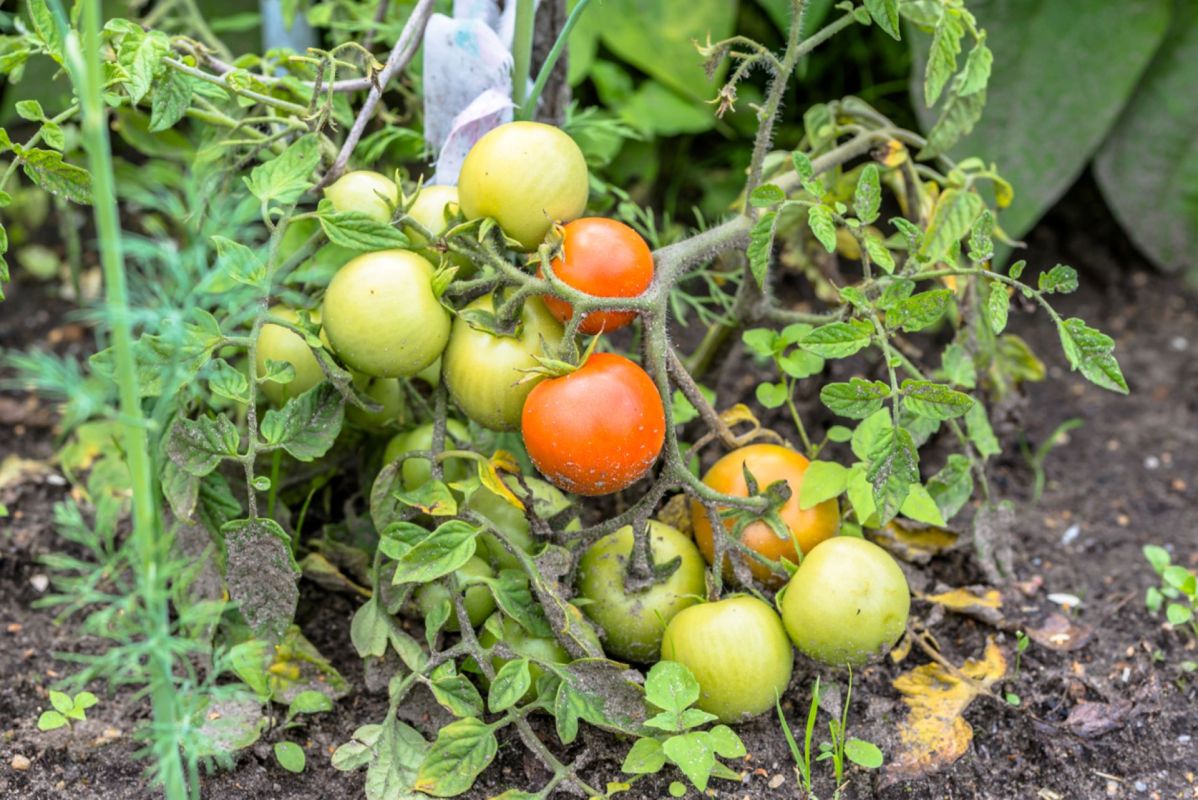Mutated tomatoes may sound … unappetizing. But a new study led by scientists at the Boyce Thompson Institute found quite the opposite — the mutated tomatoes in the study are more resistant to diseases that cause them to rot.
The study, published in June 2023, began as a deeper look into adpressa tomatoes — a variety of tomatoes discovered in the 1950s whose genetic factors cause the plants to grow flat and close to the ground, instead of upward toward the sky, according to Phys.org.
The researchers found that the mutation causing them to adpress — grow in this flat pattern — also results in a lack of starch production, causing a resistance to blossom-end rot.
Blossom-end rot affects tomatoes and other fruits and vegetables such as melons, peppers, and squash. It is often caused by lack of calcium in the plant sometimes brought on by water stress — not enough or too much water, too quickly — which can be difficult and sometimes impossible for gardeners to control.
In tomatoes, blossom-end rot begins as a small bruise-like spot, which eventually turns into a leathery-looking material on the outside of fruit. It causes the produce to ripen — and go bad — quickly, and can open the door for other diseases and fungi to invade the fruit or vegetable.
Scientists at the head of the study were enthusiastic to find that this adpressa mutation could put an end to that.
"This study reveals the potential for engineering or breeding tomatoes that can better withstand environmental challenges," explained Phillippe Nicolas, postdoctoral researcher, per Phys.org.
If this becomes a reality, you could end up with blossom-end rot-resistant tomatoes in your garden. And even if you're not big on tomato gardening, it still might mean a larger selection of tomatoes — and possibly other fruits and vegetables affected by blossom-end rot — in your local grocery store.
Reducing the number of crops affected by this disease could also cut down on food waste.
According to the Environmental Protection Agency, food waste is food discarded by humans, usually because it is spoiled, leftover from a meal, or considered inedible like a peel or rind. One-third of the food in the world becomes food waste each year. A small modification to avoid blossom-end rot — especially if it works for other crops as well — could make a significant impact in reducing this number.
"We hope this discovery will lead to novel approaches in creating plants resistant to blossom-end rot and other types of stress-induced damage," said lead researcher Carmen Catalá. "Not only would it benefit gardeners and commercial growers, but it would have a significant impact in countries with adverse growing conditions, where small farmers do not have the resources to protect their crops from environmental challenges such as drought."
Join our free newsletter for weekly updates on the coolest innovations improving our lives and saving our planet.









